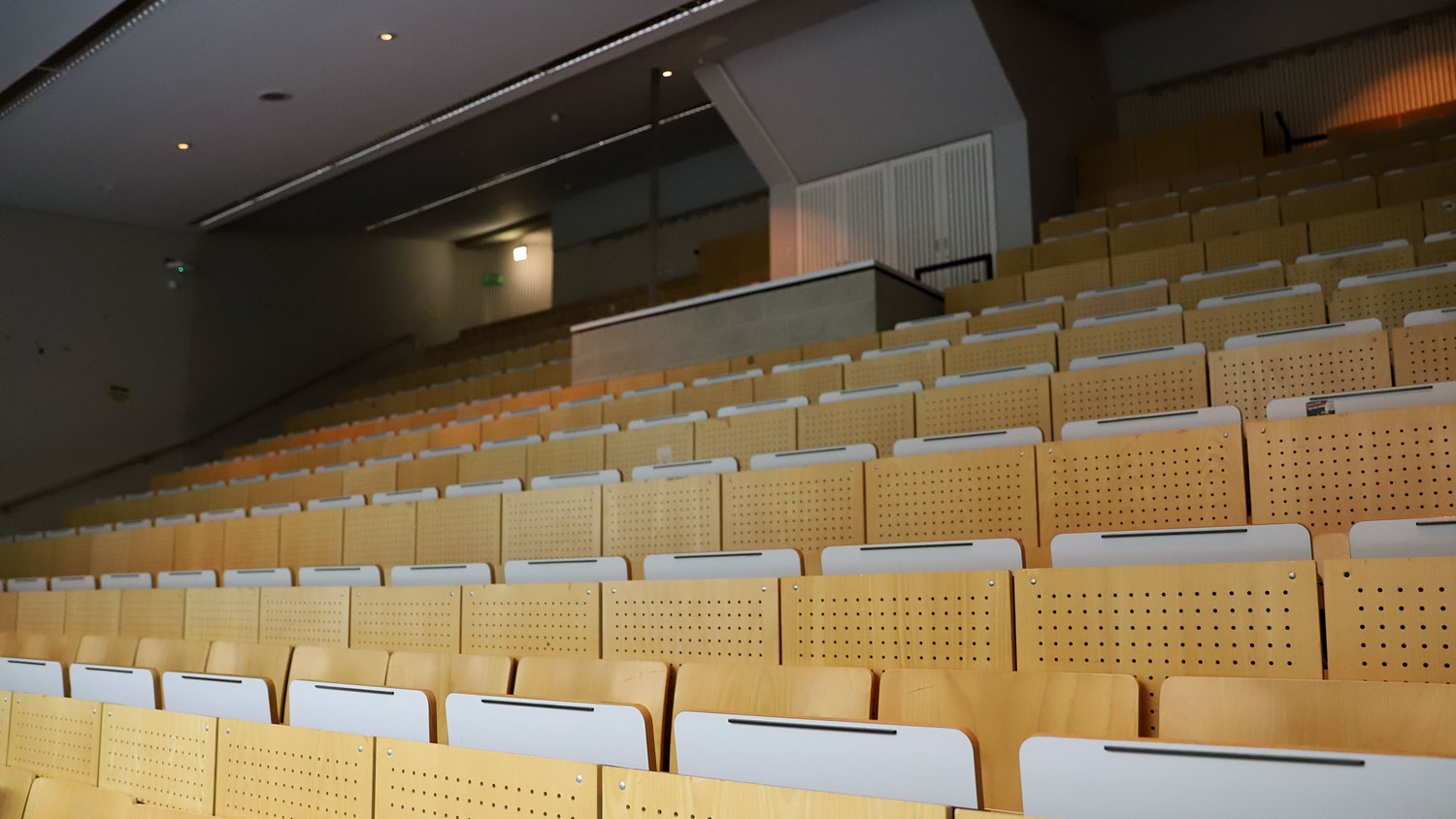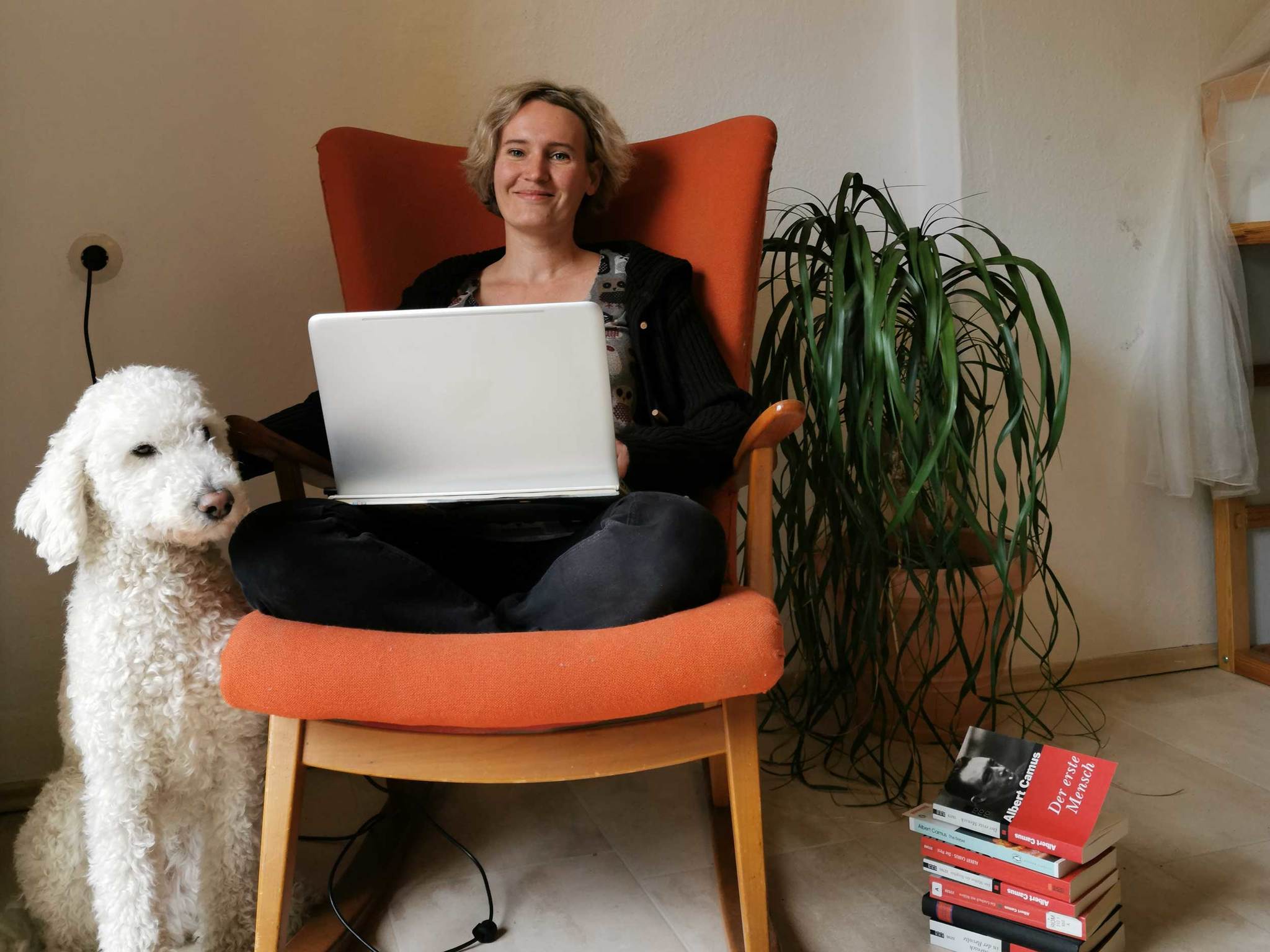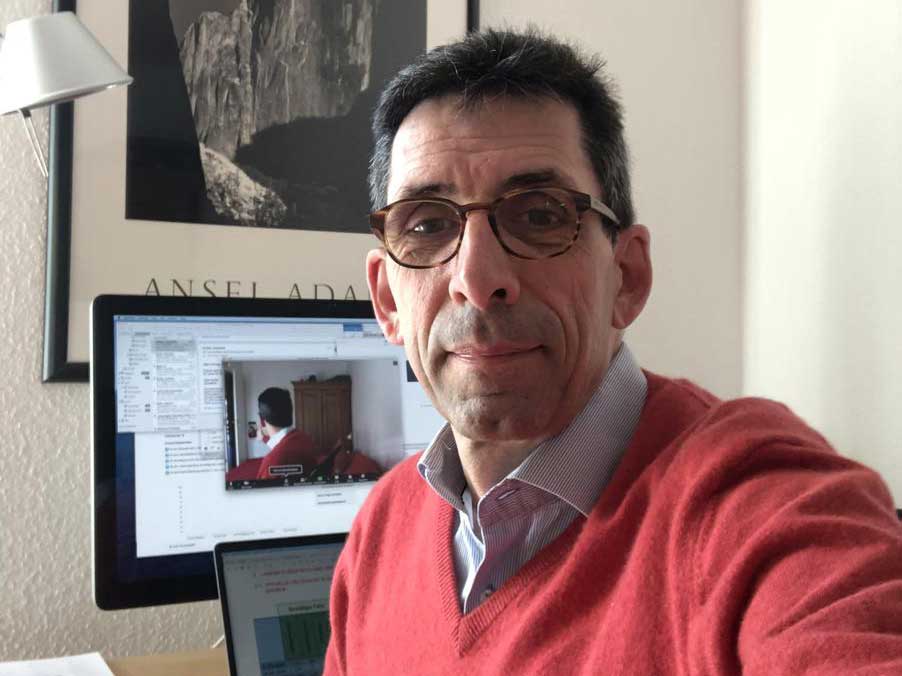
©Karsten Lehmkuhl / Universität Bremen
Overcoming Hurdles for the Digital Semester
Four teaching staff members share their experiences with online teaching at the beginning of the digital semester with us
From face-to-face classes to online teaching: The online summer semester is a challenge for the whole university. How did the teaching staff manage the short-notice change to virtual teaching by the start of the semester? We asked Dr. Svantje Guinebert from the field of philosophy, Professor Dr. Thomas Hoffmeister and Professor Dr. Juliane Filser from the field of ecology, and Professor Dr. Ulrich Tadday from the field of music science. A snapshot.

©privat
Dr. Svantje Guinebert
Lecturer of practical philosophy and analytical existential philosophy
How have you turned your courses into online classes, especially those that had a high ratio of practical work?
Discussing arguments, ideas, and texts together plays a central role in philosophical thinking and working. Simply put, the best way to practice this is face-to-face. In one seminar, I am playing with delayed question-answer changes: Weekly material folders with presentations, texts, and exercises offer content and my perspective; the questions to the students are chosen in such a manner that that they can choose and formulate their own point of focus; these are then included in the next presentation of mine Another class requires less work by me: The students of the “Philosophical Atelier” class took on the challenge of creating the Philosophical Atelier blog for the development and publishing of philosophical, essay-like articles. They no only gain subject-based knowledge in the class and the first results will be available soon.
What was especially important to you when you were choosing the online tools/formats?
One of the teaching challenges in philosophy is motivating students to rethink their own viewpoints and those of others. This mean explaining them in an understandable and interesting manner without giving the impression that they are set in stone. Additionally, concentration and quiet work are needed to critically mull over a situation or a statement – but whilst I have a certain influence on the work and discussion atmosphere in seminar rooms, I do not have the same chances with online teaching. I try to make sure that I offer materials and comments on how to work through them in such a way that they invite the students to work intently and also give them enough freedom to do this as they wish.
What was the biggest challenge to date? Where can you already see there being big disadvantages to online teaching?
On the one, hand there are the technical quirks that take up a lot of time and nerves. On the other hand, there is the most important point in my opinion – the lack of direct face-to-face interaction. I can react to raised eyebrows, wide eyes, and “careful-critical” head shaking during seminar discussions. What is technically possible today is really great, but it doesn’t replace the joint space to think where you stand across from somebody. The technology always has to be controlled first before the contents can take up their well-deserved place in the spotlight.
What chances and advantages do you see, especially with regard to the future after the pandemic?
One of the advantages is that we are challenged to reflect on what we, as teaching staff, actually have to do and ensure. To take a look at your self-image and ask yourself what is actually important or what is maybe not as significant can be a chance.
Moreover, it can also be unexpectedly interesting to have to do everything differently. For example, there is an advantage that I would never have thought of previously: Students who are very quiet in seminars can express themselves more comprehensively and substantially than they would have in a regular seminar. The technical obstacles may help them to overcome their own obstacles.

©privat
Dr. Thomas Hoffmeister
Professor of evolution biology and vice president academic
How have you turned your courses into online classes, especially those that had a high ratio of practical work?
I worked with online tools beforehand. For example, I used an Audience Response System with which students can give answers during a lecture via a smartphone. I also uploaded all lecture materials to Stud.IP in previous semesters. I am using screencasts to prepare lectures in this particular situation. In terms of enquiries, I am offering a chat once a week for statistics for example, where I give answers. And for tutor sessions we have thought about holding web meetings with virtual group work rooms.
What was especially important to you when you were choosing the online tools/formats?
It was important to me that I listen to the student’s wishes. That is why I communicated with them and found out which online formats work the best for them. I also found it important that some form of synchronous communication remains present, which is why the web meetings and the chat were implemented.
What was the biggest challenge to date in terms of preparation (maybe even in terms of implementation)? Where can you already see there being big disadvantages to online teaching?
Despite the fact that I already used online tools previously, it is a big challenge for me personally that I must get to know new formats. One disadvantage is the lack of personal interaction with my students when the lectures are held as screencasts When there are questions during a lecture I can deal with them in a quicker manner on the whiteboard and I can read in the faces of students whether they understand the material. It is also far more work for teaching staff to prepare the semester in this way. There is still uncertainty in some matters that can only be clarified in time, for example with regard to exams.
What chances and advantages do you see, especially with regard to the future after the pandemic?
I am very sure that we will get a grip on this extraordinary situation and that new chances for teaching and studying will arise. I hope that the mixture of online and offline teaching is used more when we return to face-to-face teaching. I see it as a chance for the future, also on an international level, for example cooperations with universities abroad can be deepened – as an example by means of online courses that our students can use from other universities and vice versa.

©privat
Dr. Juliane Filser
Professor of general and theoretical ecology
How have you turned your courses into online classes, especially those that had a high ratio of practical work?
For the class on defining animals we are sticking with the definition literature and sketches but are swapping real animals for photos. The class is extremely big; the student assistants are supervising their groups via Zoom. The great cooperation with many German colleagues, which has resulted in the photo platform digitib, that we are currently building in the shortest space of time is extremely important for this. As of yet, we only have a concept for the half-day excursions. I will record a few introductory videos with a few explanations and will then send their students on their way on their own. On the routes that I have defined, they are then to record animals via photos and video, including the location, define them, and upload them to Seafile. I will subsequently make comments.
What was especially important to you when you were choosing the online tools/formats?
That they are stable and that we interact online as little as possible so that students who have a bad internet connection are not disadvantaged. I am uploading a great deal to read and for time-independent research. We are using the Stud.IP chat function for communication that holds no data and is quick.
What was the biggest challenge to date? Where can you already see there being big disadvantages to online teaching?
The preparation of exams is extremely complicated with ILIAS, as you have to enter each question individually and I have never used it before. That makes me worry the most because it is there that nothing is allowed to go wrong – especially for big cohorts. And some students are a little too cooperation-friendly in such matters…
What chances and advantages do you see, especially with regard to the future after the pandemic?
I have to admit that I find a lot of it, apart from the exams, fun. It creates flexibility, for example for work trips or in the case of an infectious illness. Two winters ago, I had my first experiences with the concept as I would have otherwise had to cancel my big lecture twice. I also find a collection of digital excursions, much like mentioned in the frame of digitib, very attractive for the students and for me. We still have so much to learn from each other!
Dr. Ulrich Tadday
Professor of historical music sciences
How have you turned your courses into online classes, especially those that had a high ratio of practical work?
I have not “redesigned” my – not only – “analogue” classes into “online classes” but have had to search and create new themes and topic that can be pursued with scientific interest (in music) and online. Music science lectures and seminars cannot simply be “translated”. As a teaching form within the humanities they have and hold their own sui generis.
What was especially important to you when you were choosing the online tools/formats?
That students generally recognize, thanks to my online classes, how much a scientist can achieve with autonomous thinking, consideration, and action. The world of music science is initially created within one’s own head by music that you can play and hear, by notes that you can study, and by books and essays that you must read. The current crisis gives us the chance to reevaluate the value of researching in freedom and solitude, the fact that students can still expand their subject knowledge despite the unusual teaching and learning scenario, and the circumstance that they can further educate themselves with the help of my expert knowledge.
What was the biggest challenge to date? Where can you already see there being big disadvantages to online teaching?
The “biggest challenge” for me was rethinking and replanning my classes in such a short space of time. The disadvantage is that online teaching is two-dimensional, however real life is three-dimensional. Yet the disadvantage secretly holds the advantage that we will learn to appreciate the music science classes, where professors and students learn from each other, even more in the future. In life it is often the case that you only understand was is good, what you need, when you must involuntarily give something up, yet you miss what you later believe to be essential.
What chances and advantages do you see, especially with regard to the future after the pandemic?
Online teaching can help with knowledge transfer in the future. However, the possibilities and chances are extremely limited. On a somewhat exaggerated note, I could say that it is the point where online teaching reaches its limits that university begins to become real.